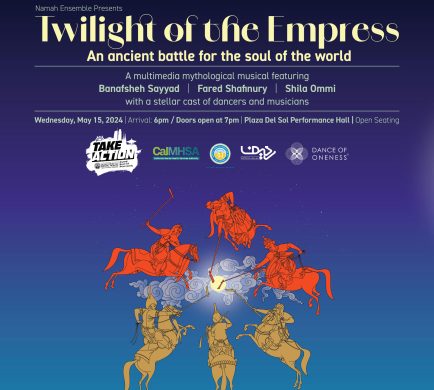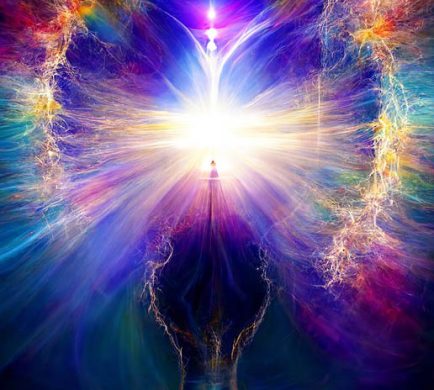Qualities That Transform
our Life and Our World
By Dr. Stephen Fulder
These are times of change, risk and uncertainty. How can we rise above the challenges such as stress, anxiety, depression, frustration, and the myriad other conflicts and unhappiness that can assail us? Can we dance with changing circumstances? How do we perform a restart? Is it possible to radically transform our daily life? How do we emerge from this sense of endless struggle? How can we invite deeper meaning and more ease, steadiness, and freedom into our lives?
Putting down our burdens isn’t just a matter of wishing to drop them. We need some new capacities. Key tools are available in the Buddhist teaching of The Five Powers: highly developed, extraordinarily effective, sophisticated yet crystal clear. Here they are together with their Pali language terms.
The First Power: Trust, Faith,
Confidence – Saddha
We don’t need to work so hard to protect ourselves, to build and maintain our shields and defences, to try to predict what might go wrong. We can let go and let life carry us. We are on the train of life, so why do we need to keep lugging the heavy baggage of our concerns? Why don’t we put them down and let the train take us and our luggage? We can trust the world, because even though it will throw pleasant and unpleasant circumstances and surprises at us, it is not actually against us, nor for us: it is completely with us. The struggle to control things, the anxiety about what might happen at any moment, the fears for the future, is in the end a far more painful, costly, and disturbing way to live.
Trust is an attitude of mind and heart with which we get up in the morning and meet life. It includes positivity, acceptance, hope and optimism, but it is more than them, since they can be forced and dependent on things being better, which we cannot expect. Instead it is the sense that we allow things to be the way they are, even if difficult, and that becomes the basis of action rather than anxiety and concern.
We build trust by repeatedly opening the doors and welcoming what comes. We can do this as a meditative practice, in which we locate and recognise any experience. If it is unleasant like a physical pain, emotional difficulty, a disturbing noise, or failure, instead of labelling it as a problem, we see it as part of our life at this unique instant. Same with the pleasant. We listen to those voices like a mother listening to her child.
Trust also allows us to go beyond the known. The unknown is the territory of liberation, the great wide-open spaces of the unexplored, yet we generally fill ourselves with the known, keeping the unknown at bay, for it is both compelling and frightening. Primal fear shuts the door to the divine. Primal trust and faith open it again to mystery and wonder.
The Second Power : Energy, Aspiration, Determination – Viriya
When the time is right, the snake needs to shed its skin, just like us faced with going to the next stage in our life. This is natural, and yet needs a lot of wriggling. Both easy and difficult. Effort has many forms, and we can access more energy if we know the secrets of refining it. Sometimes the hawk needs to flap its wings and make an effort to fly up against the force of the wind, and sometimes it simply glides effortlessly, an occasional tweak of a few feathers enough to keep soaring through the heavens.
A balanced energy is a soft effort that is kind to us and yet gets there in the end. For example, in yoga or exercise or any spiritual practice, it would mean arriving at and recognising an apparent limit, and just staying tenderly at the edge for a while without pushing, but noticing how the edge dissolves and moves. Supposing we are working on a psychological tendency such as anxiety, anger, or self-judgement, the right effort would be to meet the pattern tenderly again and again as it is expressed in mind and body, with soft interested attention. It yields to our embrace, rather than our dismay. Attacking it could create more self-judgement and a lot of troublesome measurement of success and failure.
The realization of ‘not too tight, not too loose’ was the last key the Buddha needed to realize ultimate truth. It is an acknowledgement that beyond the dualities of being a hero or a zero, there is a vast territory of possibilities.
The Third Power : Mindfulness,
Presence, Awareness – Sati
As we read this, do we know we exist? Do we know we have a body? Of course we know we exist! And obviously we know we have a body. But it’s a fair question to ask. When we walk to the car, to the shops, to a meeting – do we know we are walking? Or is our mind full of what we have to do, and what might or might not happen? We take thousands of breaths every single day; are we aware of any of them?
To experience life more fully, we need to practice Mindfulness. Mindfulness is being awake: aware, attentive, and alert to what is really happening at this very moment. Its opposite is non-mindfulness: being distracted, switching off, running on automatic, missing what is happening around us. Zooming in on ordinary experiences – the sensation of our feet on the earth as we walk, the touch of the wind on our cheeks – can illuminate them, making them special, almost magical. We see the tiny plants by the roadside, unnoticed for years. This is a welcome to hidden life!
Focus on some clear aspect of bodily life: the touch of the hands or the experience of pressure on the buttocks or the general flow of bodily sensations in various part of the body. When a thought arises, you know that you are thinking and you know what kind of thought it is. You know when you are attracted or pulled towards something you like, or pushed away from something you don’t like. You know the arising of intentions and will, of moods and states of mind. You know the inner emotional climate, subtle or gross forms of anger, joy, love and every other feeling. We can take responsibility for our own minds by seeing what is there, letting go of what is unhelpful, and encouraging what is helpful and healthy. Slowly the cacophony in our minds is quietened and we find that it is actually our music.
The Fourth Power : Calm, Serenity,
Concentration – Samadhi
If the whole world around is stampeding like a herd of bison, can we come to our senses, step aside and let the herd rush on without us? What can we let go of? Can we restrict the need to check messages, WhatsApps, and mails to certain times during the day only? Can we take mini breaks during the day to do a reset?
We can zoom in on the engines that drive this ceaseless activity, such as the to-do lists in the mind. We will see the habits of restlessness and agitation, experience the discomfort that they bring, but nevertheless just stay with it. Mental habits are fully seen, and we can actively let them go, as if to say to them: “OK. I’ve seen you. I’ve got the point. Thank you and goodbye”.
Inner quiet is always available, indeed it is the ground of our consciousness; we can learn on the one hand how to let go of the noise, and on the other hand to enjoy the silence, which also reveals those hidden voices that we usually cannot hear. What stops our mind in its tracks, shuts us up, and touches our heart with awe or sublime beauty? Is it the bright full moon emerging from behind the hills, or a breath-taking multi-layered crimson sunset, or a majestic tree in the park, or the sudden loving and deep look in the eyes of someone close to us?
The Fifth Power : Wisdom, Insight, Awakening – Pannya
What kind of understanding would we need to live more lightly, to take responsibility for our life and our minds, and help us to dance with the challenges and uncertainties of life? It would certainly be more immediate, more intuitive, more insightful and more spacious than regular thinking. It is the extraordinary in the heart of the ordinary. It tends to be non-conceptual, non-verbal, and has a quality of immediate clarity. It reads and senses the inter-relationships between us and the world. It is a deep listening to what our inner voices are telling us, and a sensing of what is happening at this moment. It is humble and quiet. It asks a question and lets go of expectations for an answer, but trusts the question to work in the background and bring what is needed in its wake. It reads the tweets sent by life.
Wisdom is engaged with life, not hiding in some sacred closet. When we consider going out in the world and making change, we may often feel discouraged by issues that hold us back. We may feel that the task is beyond us, that we are helpless — just little me in a big hostile messy world — or that we are not ready. But wisdom would challenge all these stories by showing them to be constructions that are beliefs rather than the truth of things. And when we no longer invest in such disempowering narratives, our kind compassionate heart, our intentions to heal and reduce suffering in the world, and our life of goodness and harmony will naturally emerge unhindered, and we will find ourselves intending to make change and just going out and doing it.







